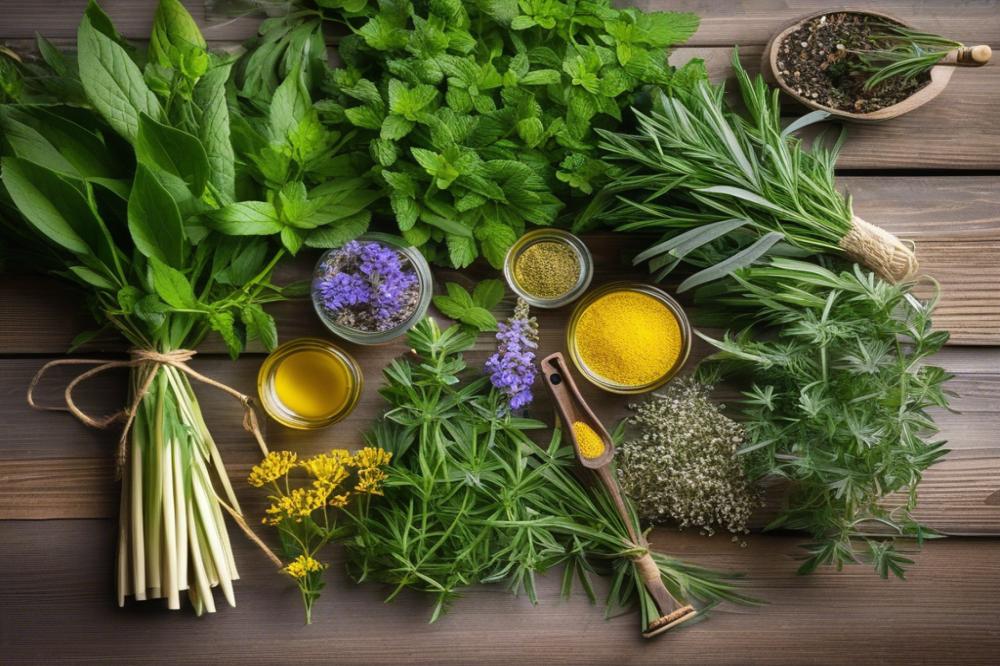Introduction
Herbs have played a crucial role in human health for centuries. Their uses range from culinary delights to powerful natural medicine. In today’s world, many people are returning to these traditional methods. Interest in herbal remedies and organic gardening has surged, as people look for ways to take control of their health.
Creating an herb garden not only adds beauty to your space but also provides many practical benefits. Homegrown herbs can be used in various forms, such as aromatherapy and herbal teas. Each plant offers unique health benefits, whether it’s soothing a headache or helping digestion. Understanding the versatility of these plants enhances their value in our lives.
Gardening tips for growing herbs often emphasize the importance of organic methods. By avoiding synthetic chemicals, gardeners can cultivate healthier plants. This approach aligns with the principles of homeopathy, focusing on natural healing through plant care. The effort invested in nurturing an herb garden often pays off with fresh options for enhancing well-being.
As society becomes more health-conscious, the demand for natural solutions continues to rise. The benefits of incorporating medicinal herbs into our daily lives can be remarkable. With the right knowledge and dedication, anyone can harness the power of these plants for better health at home.
The Importance of medicinal herbs
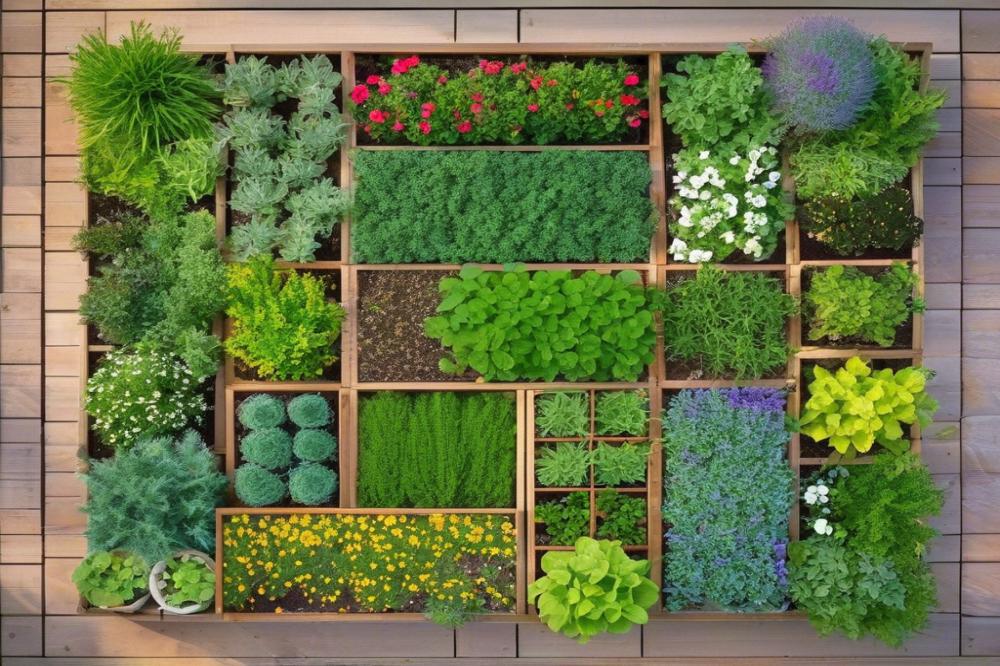

aromatherapy plays a significant role in many people’s lives. Plants are often used to create essential oils that promote relaxation and healing. These extracts can help alleviate stress, anxiety, and even physical pain. By incorporating fragrant herbs into your home, you can create a soothing environment.
Herbal remedies have gained popularity due to their effectiveness. Many individuals prefer these options over traditional medicine for minor ailments. Plants like chamomile and peppermint can be made into teas or tinctures. Such preparations may aid digestion or improve sleep quality. Homeopathy often incorporates these natural solutions to promote holistic healing.
Natural medicine offers a wide array of approaches to health. People seek alternatives to pharmaceuticals that may bring fewer side effects. Through organic gardening, anyone can cultivate their own healing plants. This method enriches one’s daily health routine while providing fresh ingredients.
Growing herbs can be both enjoyable and therapeutic. Simple gardening tips can help ensure a successful harvest. Basic care, such as regular watering and sunlight, is essential. Even a small pot on a windowsill can produce healing leaves that improve well-being.
The health benefits of these plants are hard to ignore. From boosting immunity to easing headaches, they serve countless purposes. Herbal teas made from homegrown ingredients can be both tasty and beneficial. Having such resources at your fingertips fosters independence in health and wellness.
Incorporating plant care into your regular activities can enhance your life. Caring for herbs not only provides valuable resources but also nurtures a connection with nature. This bond can reduce stress and uplift the spirit. A small garden or even a few pots can bring joy and vitality.
Top 10 Medicinal Herbs for Your Garden
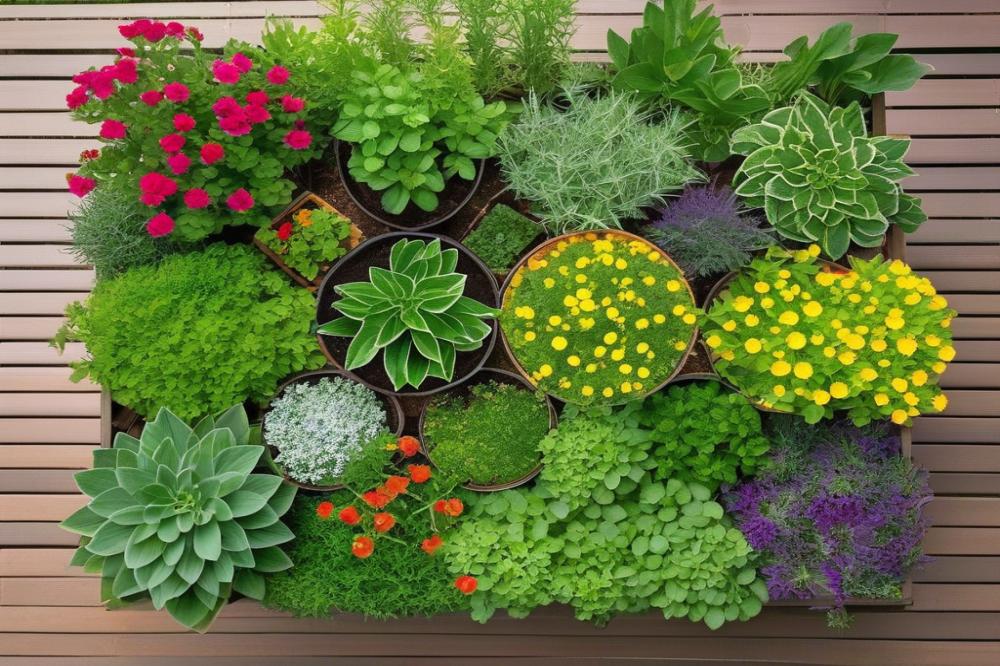

1. Lavender
This herb is known for its calming properties. People use lavender in aromatherapy and herbal remedies. It can help with anxiety and sleep issues. Growing lavender is simple. Full sunlight is what it thrives on, and well-drained soil works best.
Water it only when the soil feels dry. Pests rarely bother lavender, but watch for aphids. Regular pruning keeps it healthy and encourages new growth.
2. Peppermint
Peppermint is refreshing and has several health benefits. It’s known for easing digestive discomfort and can be used in herbal teas. Growing this herb is quite easy; it prefers partial shade and moist, rich soil.
Be mindful, as peppermint tends to spread rapidly. Container gardening can help control its growth. Aphids and spider mites can be potential troublemakers, so check for them regularly.
3. Echinacea
This vibrant flowering plant is famous for its immune-boosting effects. Many people use echinacea in homeopathy and herbal remedies to combat colds. It loves full sun and requires average soil quality.
Watering should be moderate, allowing the soil to dry out between waterings. Pests like slugs might appear, so keep an eye out. Mulching can help prevent pest issues.
4. Chamomile
Chamomile is soothing, often used to decrease stress and improve sleep. Drinking chamomile tea is a popular way to enjoy its benefits. This herb thrives in well-drained soil and prefers full sun.
When growing herbs like chamomile, be sure not to overwater. It may attract pests such as aphids, so regular checks are essential. Deadheading spent flowers can promote further blooming.
5. Thyme
This herb is not just a kitchen staple; it also has medicinal properties. Thyme is known for its antifungal and antibacterial benefits. It grows best in full sun with well-drained soil.
Water thyme only when necessary, as too much can cause root rot. Occasionally, you might see issues with whiteflies. Pruning helps keep the plant bushy and productive.
6. Basil
Basil offers more than just flavor; it also aids in digestion and has anti-inflammatory properties. Some use it in herbal teas, making it quite versatile. Full sun and nutrient-rich soil are optimal for growing basil.
Regular watering is needed, especially in hot weather. Keep an eye out for aphids, which can be a common pest. Regular harvesting promotes bushier growth and prevents flowering.
7. Sage
This herb is rich in antioxidants and known for its anti-inflammatory effects. People often use sage in various herbal remedies. It prefers well-drained soil and full sunlight.
Water sage sparingly, allowing the soil to dry out between waterings. Watch for spider mites, as they can be a nuisance. Pruning can improve air circulation within the plant.
8. Oregano
Oregano boasts powerful antimicrobial properties. It’s often used in cooking and in herbal remedies for its health benefits. This plant thrives in poor soil and prefers full sun exposure.
Watering should be kept to a minimum, as too much moisture can harm it. Occasionally, pests like aphids may appear. Pruning encourages bushier growth and maintains flavor.
9. Calendula
Calendula is not just pretty; it has excellent skin-healing properties. Many people make herbal remedies from its flowers. It grows well in full sun and tolerates poor soil.
Regular watering is necessary to keep it blooming. Watch for pests such as slugs, which can damage the leaves. Deadheading spent blooms will promote more flowers.
10. St. John’s Wort
This herb is well-known for its mood-enhancing effects. It’s often used in natural medicine for anxiety and depression. St. John’s Wort prefers full sun and well-drained soil for optimal growth.
Water it lightly, allowing the soil to dry somewhat between watering. Keep an eye out for pests like aphids. Pruning back in the fall helps prepare the plant for future growth.
Health Benefits of Each Herb
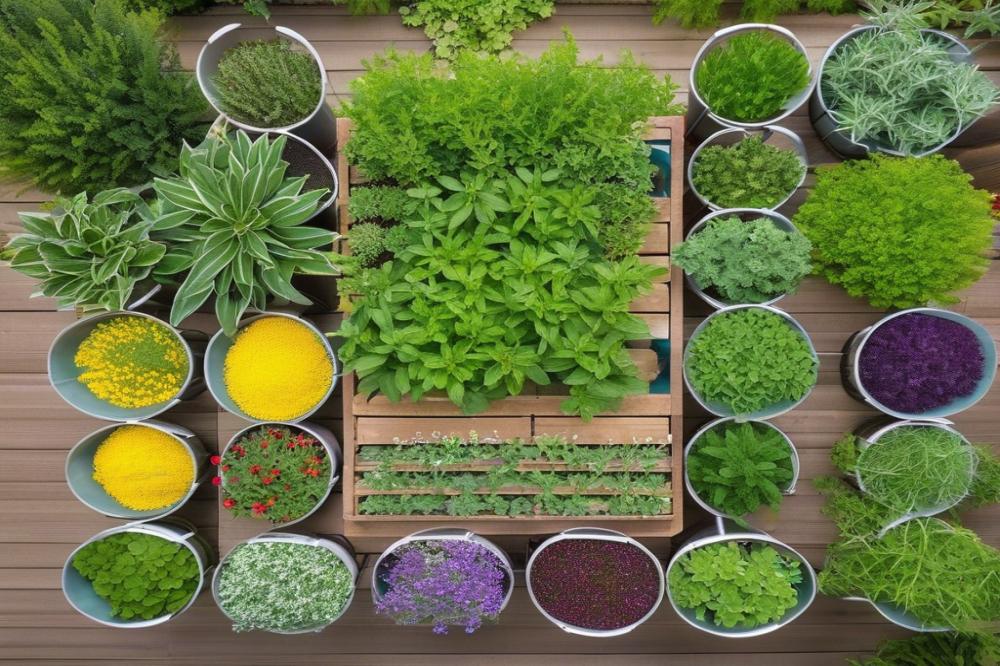

Herbal remedies have been cherished for centuries. Here, we explore the health benefits of some essential herbs you might want to grow in your garden. These plants not only enhance your outdoor space but also offer various healing properties. They can be easily used in herbal teas, tinctures, and other natural medicine applications.
1. Peppermint
This fragrant herb promotes digestion. People often use peppermint leaves for soothing upset stomachs. Research shows it may also relieve headaches when inhaled or consumed as tea. For a relaxing moment, brew some leaves for a refreshing herbal tea.
2. Chamomile
Chamomile is famous for its calming effects. Studies suggest it can help reduce anxiety and improve sleep quality. You only need to dry the flowers and steep them in hot water to make a soothing chamomile tea. Additionally, it’s often used in aromatherapy for relaxation.
3. Lavender
Known for its beautiful blooms, lavender also offers great health benefits. It has been used for centuries to ease stress and promote restful sleep. Lavender essential oil is popular in homeopathy and can be added to a warm bath or used in a diffuser. Cooking with culinary lavender can add a unique flavor to dishes as well.
4. Echinacea
This herb is a popular choice for boosting the immune system. Evidence indicates that Echinacea can help shorten colds and improve overall immune function. You can enjoy Echinacea in tea form during flu season. The flowers are quite attractive, making this a lovely addition to your garden.
5. Ginger
Fresh ginger root is well known for its ability to soothe nausea. Numerous studies highlight its effectiveness against morning sickness and motion sickness. Ginger tea can be made by simply boiling fresh slices in water. Plus, ginger also adds a zesty flavor to dishes, offering both culinary and health benefits.
6. Rosemary
Rosemary is more than just a culinary herb. It’s believed to enhance memory and concentration. Some studies suggest that its aroma may even improve cognitive performance. You might consider infusing it into herbal teas for added flavor and benefits.
7. Lemon Balm
This herb belongs to the mint family and is known for its lemony scent. Lemon balm has calming properties and may help reduce stress. Making lemon balm tea can create a delightful and soothing experience. It’s often used in aromatherapy to uplift the mood.
8. Turmeric
Turmeric is recognized for its anti-inflammatory properties. Many people use it to alleviate joint pain and support overall health. Curcumin, its active ingredient, has been the subject of many studies. Turmeric tea is a simple way to incorporate this powerful herb into your diet.
9. Basil
Basil is not only a key ingredient in many dishes but also offers medicinal benefits. It has anti-inflammatory and antibacterial properties. Basil tea can be an excellent way to enjoy its beneficial effects. Growing herbs like basil ensures you always have fresh supply at your fingertips.
10. Thyme
This herb is often overlooked, yet it has remarkable health benefits. Thyme possesses antiseptic properties and may be useful in combating respiratory infections. Herbal teas made from fresh thyme leaves can provide soothing relief. Its earthy flavor could enhance many recipes too.
Gardening Tips for Cultivating Medicinal Herbs
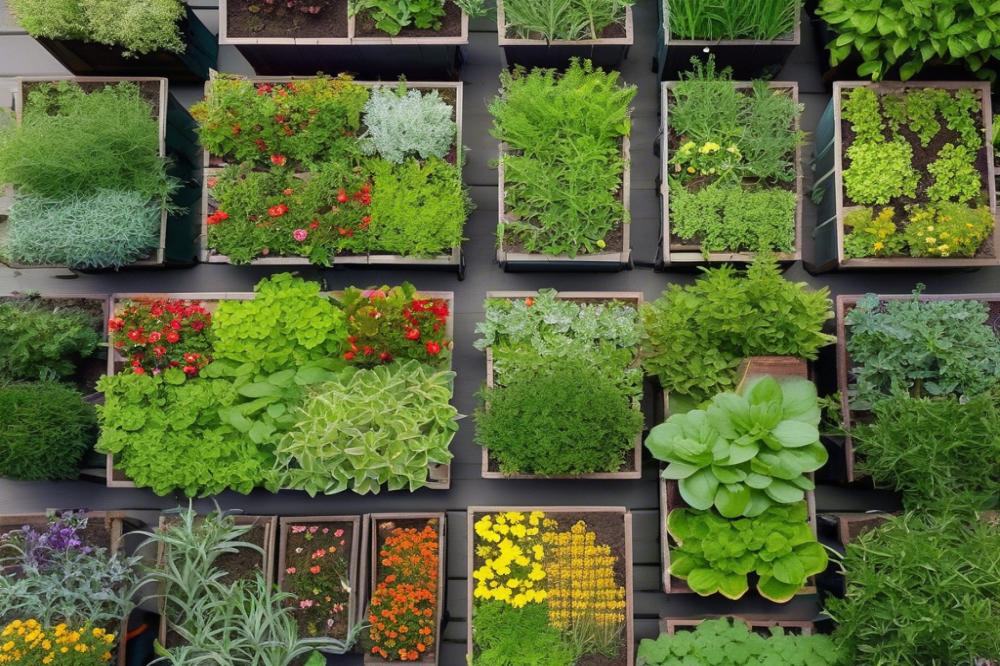

Growing herbs can be a rewarding experience. Start with the right soil. Different plants prefer various types. Most herbs thrive in well-drained, loamy soil rich in organic matter. Adding compost can boost nutrient levels and improve soil structure. Regular testing of pH levels ensures a proper environment. Most herbs prefer slightly acidic to neutral soils.
Watering requires attention. Herbs generally do not like soggy roots. A consistent watering schedule is key. It is best to water early in the morning or late in the afternoon. This timing prevents evaporation and sunburn on the leaves. Observe plant health to adjust your routine. Underwatering can lead to wilting, while overwatering may cause rot.
Light is crucial for growth. Most herbs need at least six hours of sunlight daily. Select a location in your garden that gets plenty of sun. If growing indoors, consider placing pots on windowsills that face south. Often, plants not receiving enough light become leggy and weak.
Practicing organic gardening methods enhances flavor and potency. Chemical fertilizers and pesticides can impact herb quality. Instead, use natural remedies like compost tea or neem oil as needed. This promotes sustainability in your space.
Companion planting can also maximize your garden’s potential. Pairing herbs with vegetables creates a natural pest deterrent. For instance, basil grows well alongside tomatoes. These combinations protect each other and increase overall yield.
To save space, consider vertical gardening. Herbs can thrive in pots, wall planters, or hanging baskets. This method allows for better air circulation and sunlight exposure. It’s a practical way to fit various plants into a smaller area.
Creating your own herbal remedies at home is easy, too. Dried herbs can be used to make herbal teas or infused oils. Consider using them for aromatherapy or any other natural medicine applications.
Understanding the health benefits of these plants encourages better plant care. Regularly harvesting leads to bushier growth. The more you use your herbs, the healthier and happier they become.
Stay patient and observant. Gardening is a journey with learning opportunities at every turn. Each step brings you closer to connecting with nature while enhancing your well-being.
Preserving and Using Your Harvest
After spending time growing herbs in your garden, it’s important to know how to preserve your harvest. Drying is one of the simplest methods. Hang bunches of herbs upside down in a warm, dark place to protect their colors. Using a dehydrator is another effective option. The consistent heat condition helps keep their oils intact, which means they maintain their flavor and health benefits.
Once your herbs are dry, store them in airtight containers. Glass jars work well, and they keep herbs fresh. Label each jar so you know what you have on hand. Just a small amount can add a lot of flavor to meals. You may also consider freezing chopped herbs in ice cube trays with a bit of water or oil. This makes it easy to toss a cube into soups and sauces later on.
Incorporating Herbs into Daily Diets
Incorporating your harvested herbs into your everyday meals can be both fun and beneficial. Fresh herbs can enhance the flavor of many dishes. Try adding basil to pasta, or cilantro to tacos. Herbal teas are another great option. Steep fresh leaves in hot water for a soothing drink. Mint and chamomile are popular choices that offer health benefits. Experiment with different combinations for unique flavors.
Herbal remedies can also play a role in your wellness routine. For example, thyme can be made into a simple cough syrup. Boil fresh leaves in water, add honey, and you’ve created a soothing remedy. Homeopathy often includes herbal ingredients, bringing traditional practices to modern natural medicine.
Simple Herbal Preparations
Making simple herbal preparations at home is easy and rewarding. Infused oils can be used for cooking or as a base for skin treatments. Fill a jar with olive oil and add your favorite herbs. Let the mixture sit in a warm spot for a couple of weeks. Strain out the herbs, and you have a fragrant, flavorful oil.
Another easy preparation is herbal vinegar. Combine vinegar with fresh herbs and let it steep for a few weeks. This can be used in salad dressings or as a flavor enhancer. Always remember to practice good plant care. Regularly check your herbs for pests or diseases, and follow gardening tips that promote healthy growth.
Whether you enjoy your herbs in cooking, tea, or natural remedies, the satisfaction of using your own garden yield is unparalleled. Seek out recipes that call for fresh herbs. Embracing these plants in your daily life can enhance your health and your meals.
Final Thoughts on Herb Gardening
Incorporating healing plants into home gardens offers a myriad of benefits. Beyond their delightful aromas and vibrant colors, these plants serve practical purposes. Growing them allows you to explore nature’s pharmacy right in your backyard. They provide a chance to connect with nature and cultivate personal well-being.
Starting your own herb garden can be a rewarding journey. The thrill of watching tiny seeds transform into lush, green plants is unmatched. Imagine stepping outside to pick fresh ingredients for your meals. These additions not only enhance the flavor of dishes but can also support better health.
Consider the joy of using herbs for common ailments. Herbal remedies have been part of human culture for centuries. They offer options for natural healing without relying solely on commercial products. Additionally, some herbs can even be utilized for aromatherapy. This practice can help soothe the mind and enhance relaxation at home.
Overall, tending to your own garden invites a sense of purpose and accomplishment. Each plant nurtured adds to your living space and contributes to your lifestyle. Make growing medicinal herbs part of your routine, and you may discover newfound passions. Embrace this wonderful opportunity to enrich your health and nourish your culinary creations.

